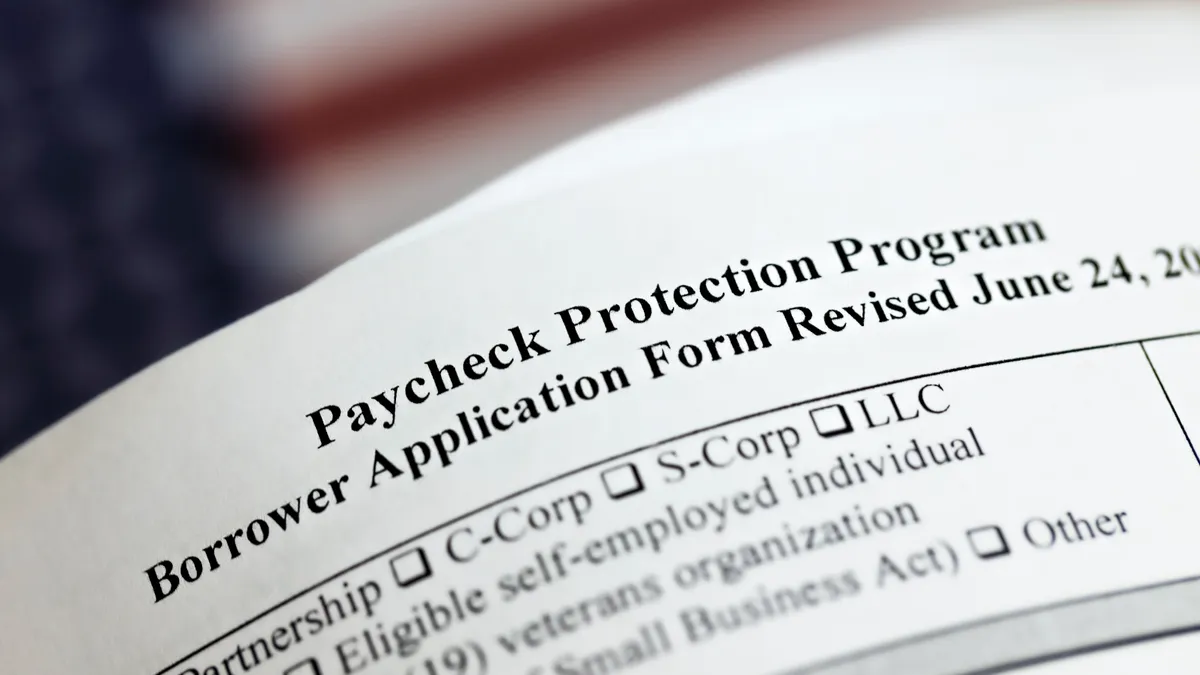Saule Omarova’s nomination to lead the Office of the Comptroller of the Currency (OCC) has spurred a flood of partisan responses from conservative and liberal lawmakers in Washington, representing just how politicized the selection of the top post at the U.S.’s largest bank regulator has become.
Her nomination has drawn support from most Democrats and pushback from Republicans, with both parties seemingly agreeing that the Cornell University professor would usher in a heavier regulatory hand.
Democratic supporters say her leadership would rein in the banking and fintech space, while Republicans argue her ideological views could stifle innovation.
Yet, despite receiving support from Senate Banking Committee Chairman Sherrod Brown, D-OH, and Sen. Elizabeth Warren, D-MA, the Kazakhstan native’s nomination may not be a shoo-in among the left.
Omarova’s academic writings on nationalizing retail banking, which have garnered fierce pushback from Republicans, have reportedly also concerned some moderate Democrats, who fear her ideology may be too radical to helm the bank regulator.
Sen. Jon Tester, D-MT, who serves on the Senate Banking Committee, told Politico on Monday he has "concerns" about Omarova as head of the OCC.
"I want to give her a fair shake, but I do have concerns," he told the publication. "I will hold off until after I meet with her."
Tester elaborated further in an interview with CNBC on Tuesday.
"Some of Ms. Omarova’s past statements about the role of government in the financial system raise concerns about her ability to impartially serve at the Office of the Comptroller of the Currency," he said.
Omarova’s views on overhauling the U.S. banking system have reportedly concerned other Democrats, as well.
Her nomination has prompted several Senate Democrats or their staffs to suggest the president’s choice will be tough to support, according to CNBC, which cited an unnamed source.
Why Omarova?
The opposition Omarova has faced since Biden announced his intent to nominate her last month, has some questioning why the administration selected such a polarizing candidate, especially after reports emerged this year that Michael Barr, a former Ripple adviser who also served as assistant secretary of the Treasury for Financial Institutions under President Barack Obama, was being considered.
"Responsible financial regulators should try to balance mitigating risk with encouraging innovation. This would have been the approach of someone like Michael Barr," said Aaron Cutler, a partner in Hogan Lovells' government affairs unit. "[Barr] probably would have had the support of some Republican lawmakers, and certainly some Republican lawyers and lobbyists, myself included."
Yet, despite receiving praise from some low-income advocacy groups, as well as the head of the National Community Reinvestment Coalition, Barr’s nomination was challenged by progressives who warned the former Obama-era official’s prior work with former Treasury Secretary Tim Geithner during the financial crisis indicates he wouldn’t be tough enough on banks.
The White House’s selection of Omarova appears to be an attempt to appease the most liberal Democrats, many of whom say the agency has long been too cozy with banks and the fintech sector.
Warren, a member of the Senate Banking Committee and a frequent critic of the largest institutions the OCC oversees, praised Omarova’s nomination in a tweet last month, calling it "tremendous news."
"She is an excellent choice to oversee and regulate the activities of our nation's largest banks and I have no doubt she'll be a fearless champion for consumers," Warren wrote.
A top focus for Omarova will be financial stability, said Art Wilmarth, a professor emeritus at George Washington University’s law school, adding he thinks the touchstone in her career has been her view that you can’t separate financial stability from consumer protection.
"She understands that financial stability is not simply a macro issue for the policymakers and the economy at large, it's really a micro issue for ordinary households and ordinary communities," he said. "When a financial crisis happens, it has devastating economic impacts that destabilize communities, wreak havoc on households, both economic, psychological and physical. … She understands the close nexus between financial stability and consumer protection."
Her keen eye toward consumer protection could mean more scrutiny of the cryptocurrency and fintech space, areas of the financial system that benefited under the leadership of former Acting Comptroller Brian Brooks.
Under Brooks, the bank regulator issued guidance regarding banks' use of stablecoins and blockchains, as well as an interpretive letter clarifying that national banks are allowed to provide cryptocurrency custody services.
"I think she’s very keenly interested in tech and new technologies, understanding their potential to help the financial system and the broader economy, but also understanding that there are potential dangers," Wilmarth said. "Similar functions should be handled under similar regulations and she's very skeptical of people who say, ‘We don't need to regulate that the same way, it will inherently safeguard itself. Unlike Acting Comptroller Brooks, I think she's very skeptical of such arguments."
That skepticism, however, could come at a cost to innovation and capitalism, her critics have argued.
"Any honest observer would tell you that Omarova emphasizes risk mitigation, at the expense of stifling innovation," Cutler said. "If she is confirmed as the country’s Comptroller of the Currency, she would bring a heavy regulatory hand to the OCC. ... Fintech and crypto companies should prepare for regulatory scrutiny unlike any they’ve experienced."
"I don’t think I’ve ever seen a more radical choice for any regulatory spot in our federal government," Sen. Pat Toomey, R-PA, the ranking member on the Senate Banking Committee, and one of Omarova’s fiercest critics, said on the Senate floor this month. "I know that is a very sweeping statement to make. I think I can stand by it. … Ms. Omarova doesn’t just want tightened regulation of banks. What she wants to, and I quote — this is her words — ‘effectively end banking as we know it.’ … "She clearly has an aversion to anything like free market capitalism."
Toomey also requested Omarova provide the committee with a copy of her thesis, "Karl Marx’s Economic Analysis and the Theory of Revolution in The Capital," to allow the committee to fully assess her nomination.





















